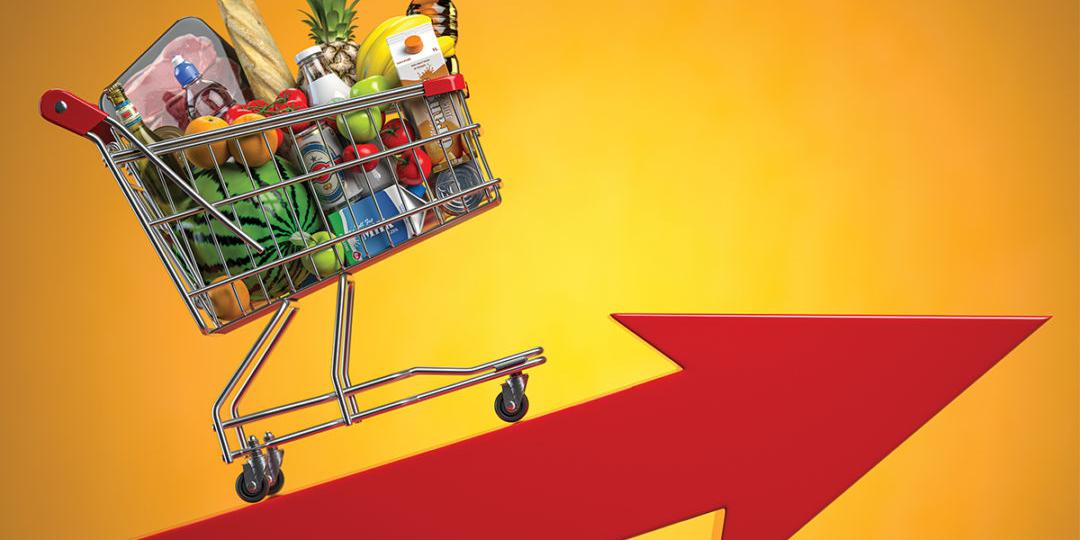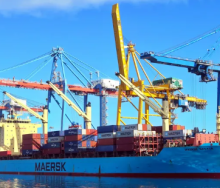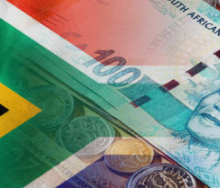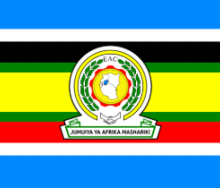With less than 48 hours to go before a fuel price increase that could take the cost of petrol and diesel in South Africa to about R25 a litre, Tiger Brands CEO Noel Doyle has warned of food inflation increases unlike anything the country has ever seen.
At current price increases, he said, it was expected that the price of basic consumables – bread, maize, breakfast cereals, “that sort of thing” – would rise by 15-20% by the close of the first six months of the year.
Doyle said prices were spiking right across the board, “but particularly in the grain section of our business”.
He explained that for the most part the price of grain had increased significantly, mainly because of Russia’s war on Ukraine – both countries being responsible for as much as 25% of global supply.
From a local perspective, he added that the recent floods in Kwa-Zulu Natal had also knocked food supply hard.
They affected sugar supply and packaging companies, and because of the impact of rising tinplate prices on the canning industry, they’ve had to work cost escalations into their own pricing.
“Basically everything that is a line item is impacted. Our Koo canned vegetables range is heavily reliant on tinplate. There are also major supply squeezes out of China, so we are seeing massive cost inflation.”
He added that offloading vessels in the Port of Durban, which had been hit hard by April’s flooding, added to the complexity of the supply chain.
At least goods, once offloaded, seem to be moving at an above-average rate for a port still reeling from the effect of calamitous weather.
For the time being though, it was hoped that the worst inflationary pressures had worked their way into the market, Doyle said.
“We hope it won’t get any worse. It feels that we’re at the crest of the wave.”
Unfortunately it seems consumers are going to have to brace themselves for punishing price increases from the first six months of the year, spilling over into the last half.
That is unless parliament decides to extend the two-month reprieve of R1.50 in the fuel levy that comes to an end at midnight tomorrow.
Along with fuel price adjustments, reinstating the levy will take the price of petrol and diesel from R21.84 and R21.99 per litre respectively, to R25 or more a litre.
Pressed by what can be expected from parliament, Minister in the Presidency, Mondli Gungubele, prevaricated, saying that it was up to National Treasury to decide what to do.
But Finance Minister Enoch Godongwana indicated that government was fully aware that consumers were facing extreme hardship, especially low-income earners.
Although he indicated that the levy suspension could be extended, economists widely agree that it is unlikely as Central Energy Fund data have pointed to projected under-recovery in the petrol price of between R2.32 and R2.43 for June, if the levy is not reinstated.
Doyle said although it was not the availability of food that was a problem at the moment, apart from certain supply shortages such as gelatine, it was the affordability of basic goods for the man on the street.
Even if transportation costs were somehow held in check and prices stabilised, food inflation was unlikely to fall below 10% in the next six months, he said – a best-case scenario if inflation is kept in check in the lower teens.
The most likely and unfortunate scenario that would play out in the coming months, he said, “is a real consumer price index sitting well north of 10%”.













